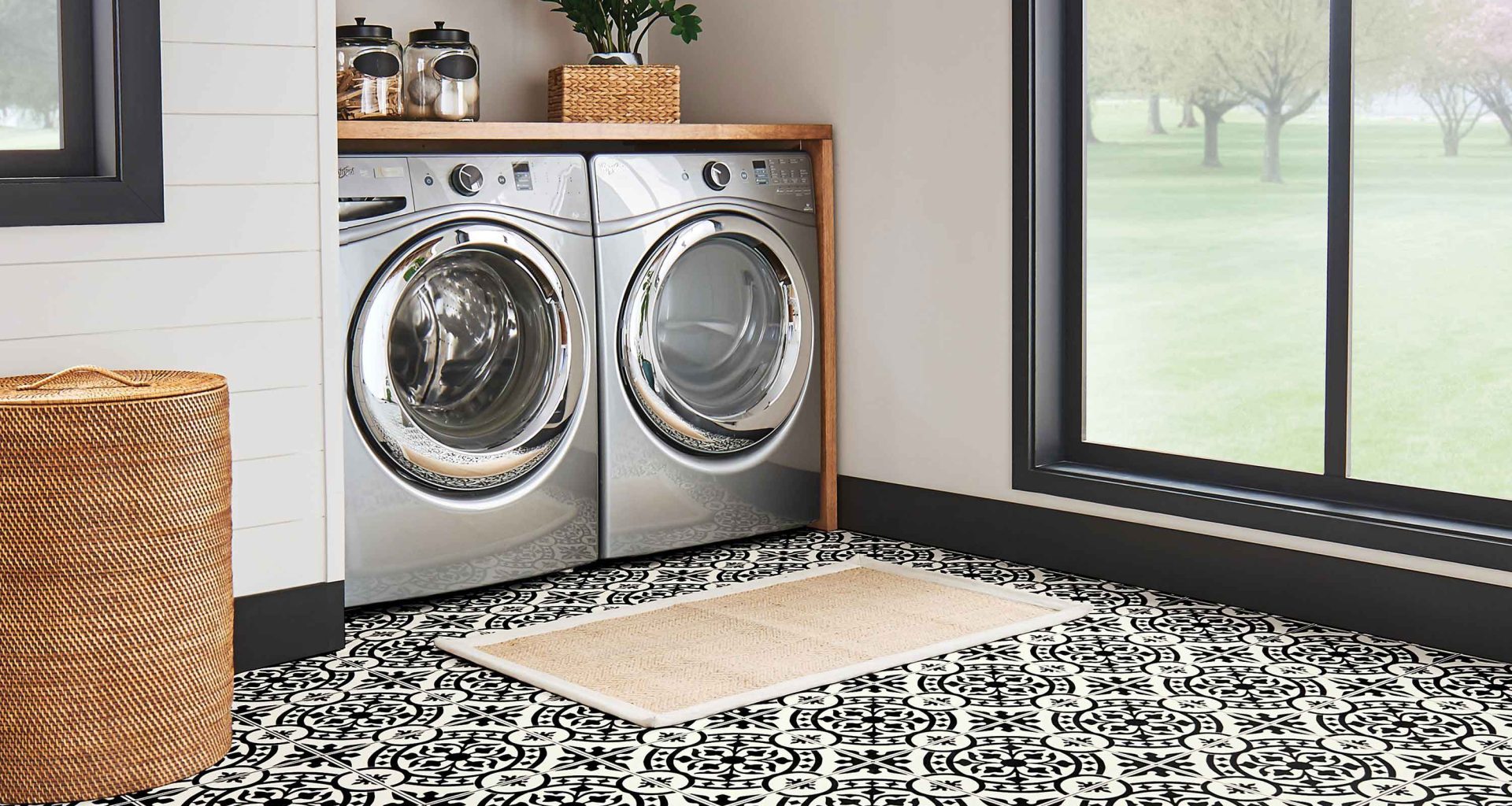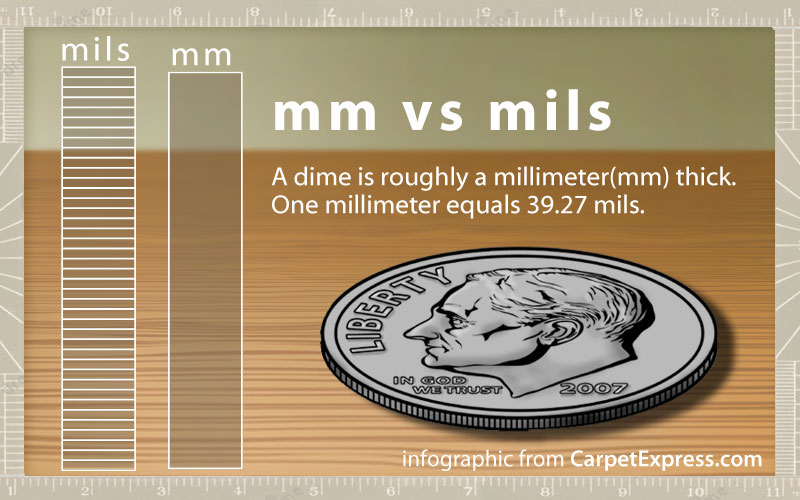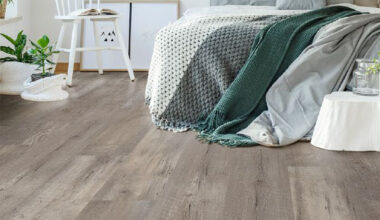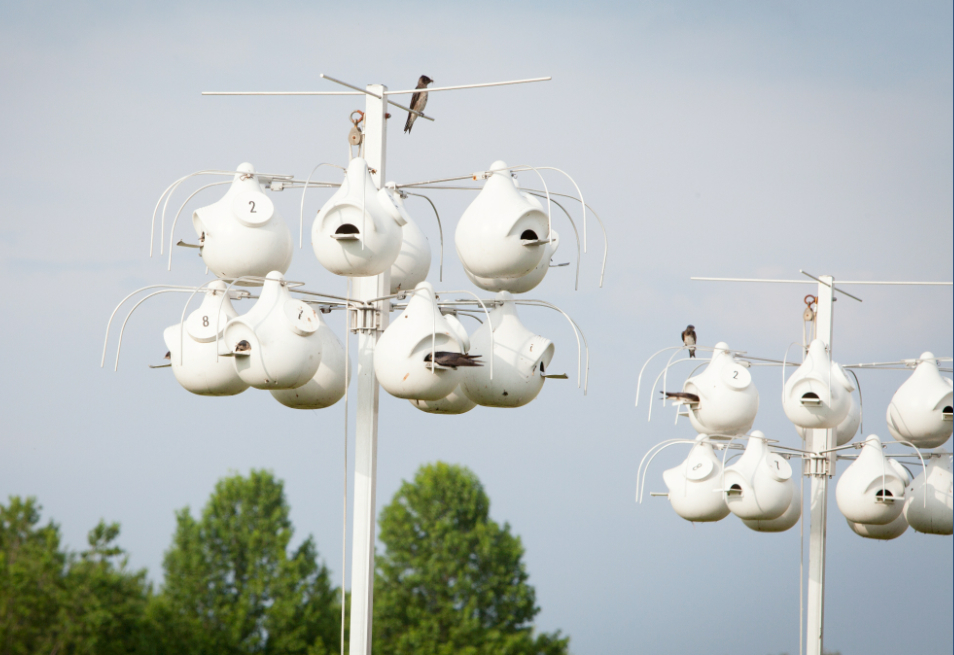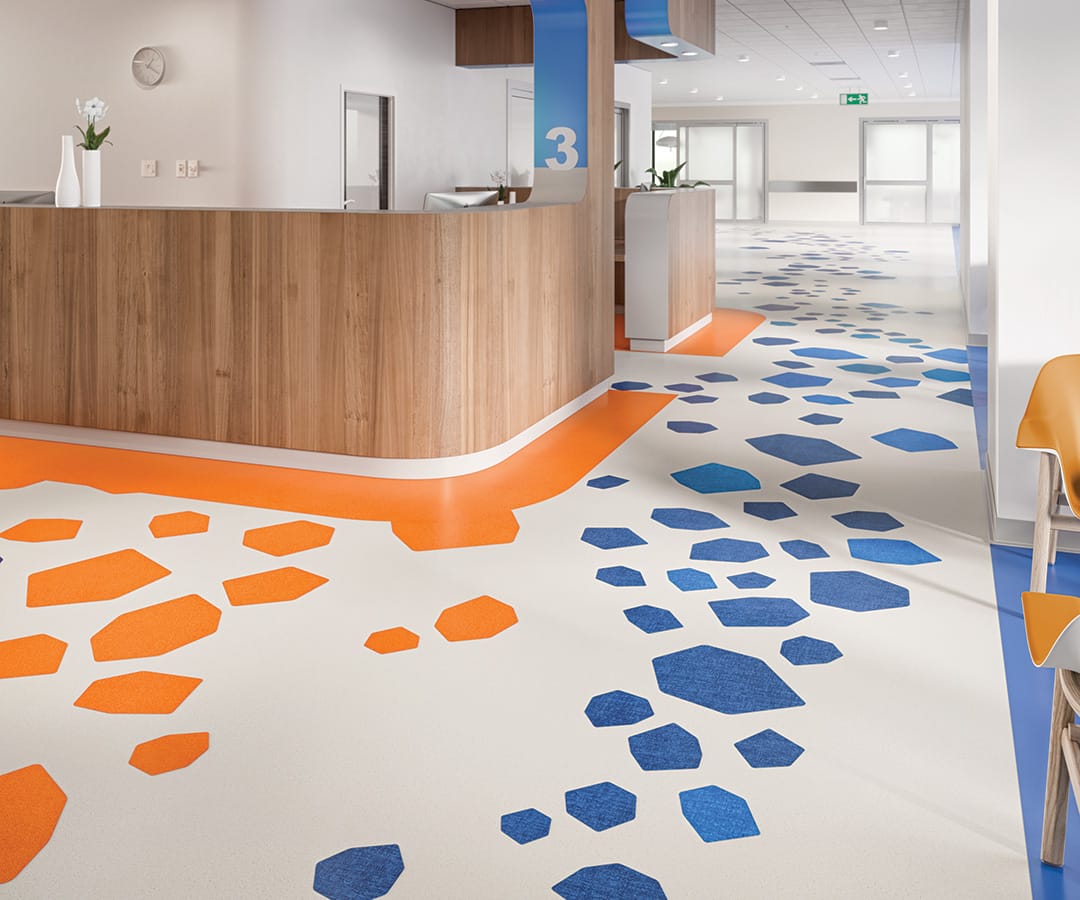Discover the reasons sheet vinyl flooring is a superior choice for laundry rooms. This article compares it with luxury vinyl & WPC/SPC, ceramic tiles, and explains why carpet, hardwood, and laminate are less suitable.
The Key to Choosing Laundry Room Flooring
When picking the right flooring for a laundry room, both functionality and design are paramount. This area requires flooring that can handle moisture, heavy appliances, and regular use. This discussion highlights why sheet vinyl flooring is a top contender, offering a detailed comparison with other popular materials.
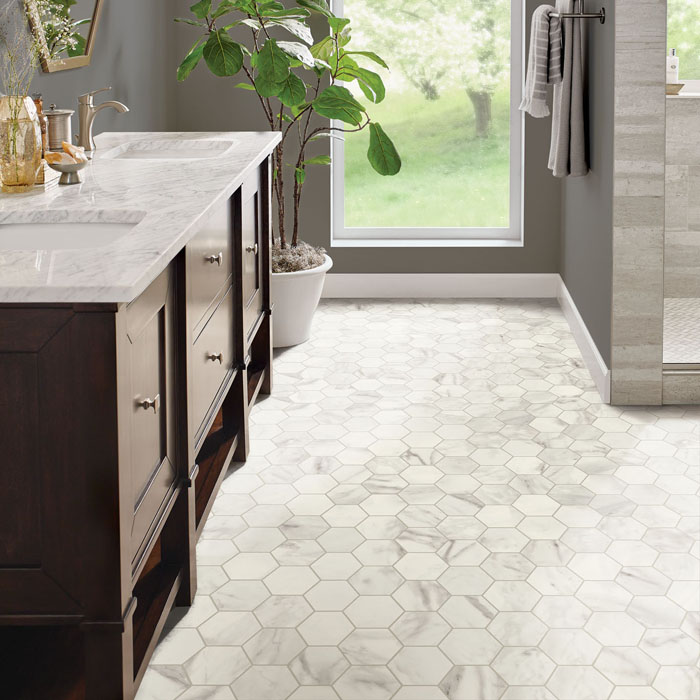
Durability and Moisture Resistance: A Must-Have
Laundry rooms are prone to moisture and spills, demanding floors that can withstand water damage and staining. The seamless nature of sheet vinyl gives it an advantage in moisture-prone environments. It’s equally important for the flooring to be strong enough to support heavy washing machines and dryers.
Enhancing Your Space
The ideal flooring combines practicality with aesthetics, transforming your laundry room into a welcoming and efficient space.
Sheet Vinyl Flooring Explained
Sheet vinyl flooring stands as a resilient and versatile choice, celebrated for its waterproof and durable nature. This flooring solution is particularly well-suited for spaces like laundry rooms where moisture and spills are common. One of the standout features of sheet vinyl is its seamless installation. Unlike tiles or planks that may leave gaps or seams, sheet vinyl comes in large rolls. These rolls are custom cut to fit the specific dimensions of a room, ensuring a snug, seamless surface. This characteristic is crucial in preventing water from seeping through gaps, thereby protecting the subfloor from moisture damage.
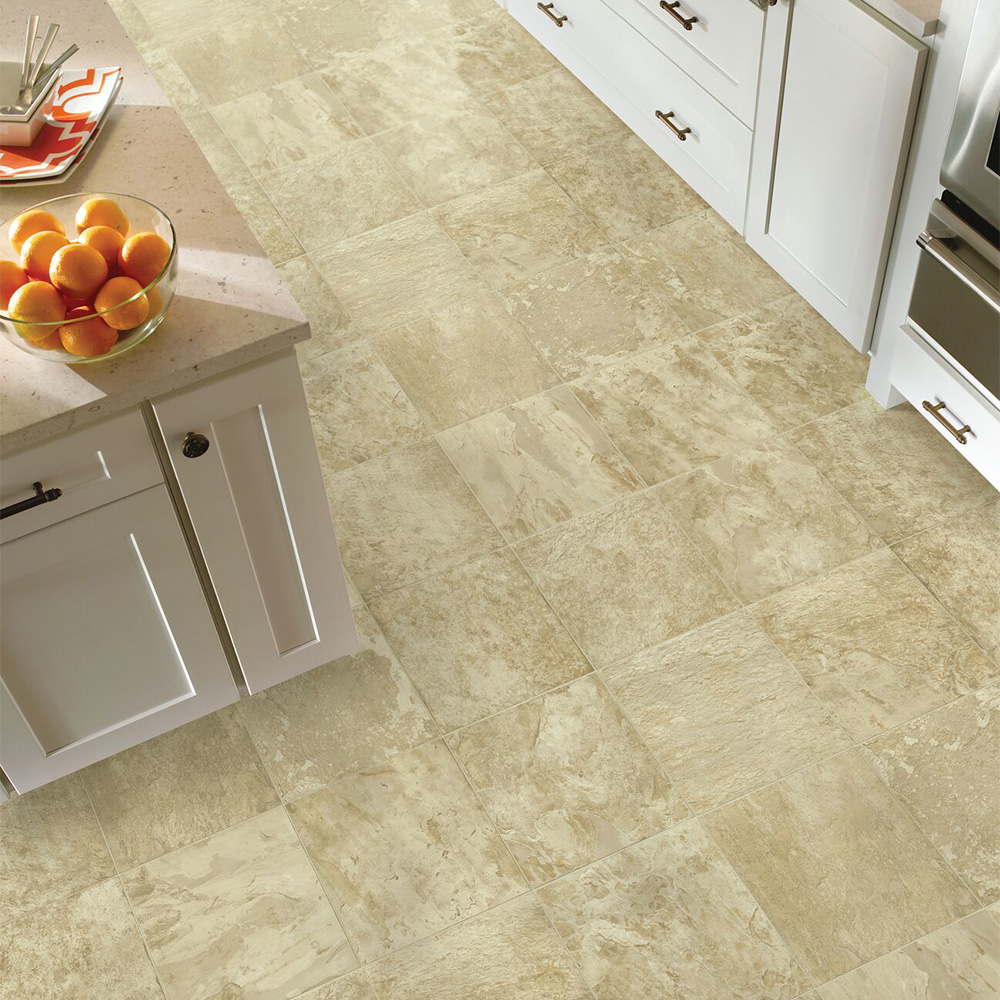
An interesting aspect of sheet vinyl is its frequent misidentification as linoleum. Although both materials appear similar and offer durability, they differ significantly in composition and environmental impact. Linoleum is made from natural materials like linseed oil, cork dust, and wood flour, making it an eco-friendly option. On the other hand, sheet vinyl is primarily composed of synthetic materials, which contribute to its exceptional water resistance and versatility in designs. This common misconception does not diminish the value of sheet vinyl; instead, it highlights the need for awareness about the distinct advantages and applications of different flooring materials.
The availability of sheet vinyl in various designs and patterns allows for a wide range of aesthetic choices. From mimicking the look of hardwood and stone to presenting bold, contemporary patterns, sheet vinyl can enhance the decor of any laundry room. Its ease of maintenance—requiring just regular sweeping and occasional mopping—further adds to its appeal for busy households. Overall, the combination of practical features and aesthetic flexibility makes sheet vinyl an excellent flooring option for laundry rooms and beyond.
Why Sheet Vinyl Shines in Laundry Rooms
With its water resistance, ease of cleaning, and diverse design options, sheet vinyl offers the appearance of more costly materials without the hefty price tag.
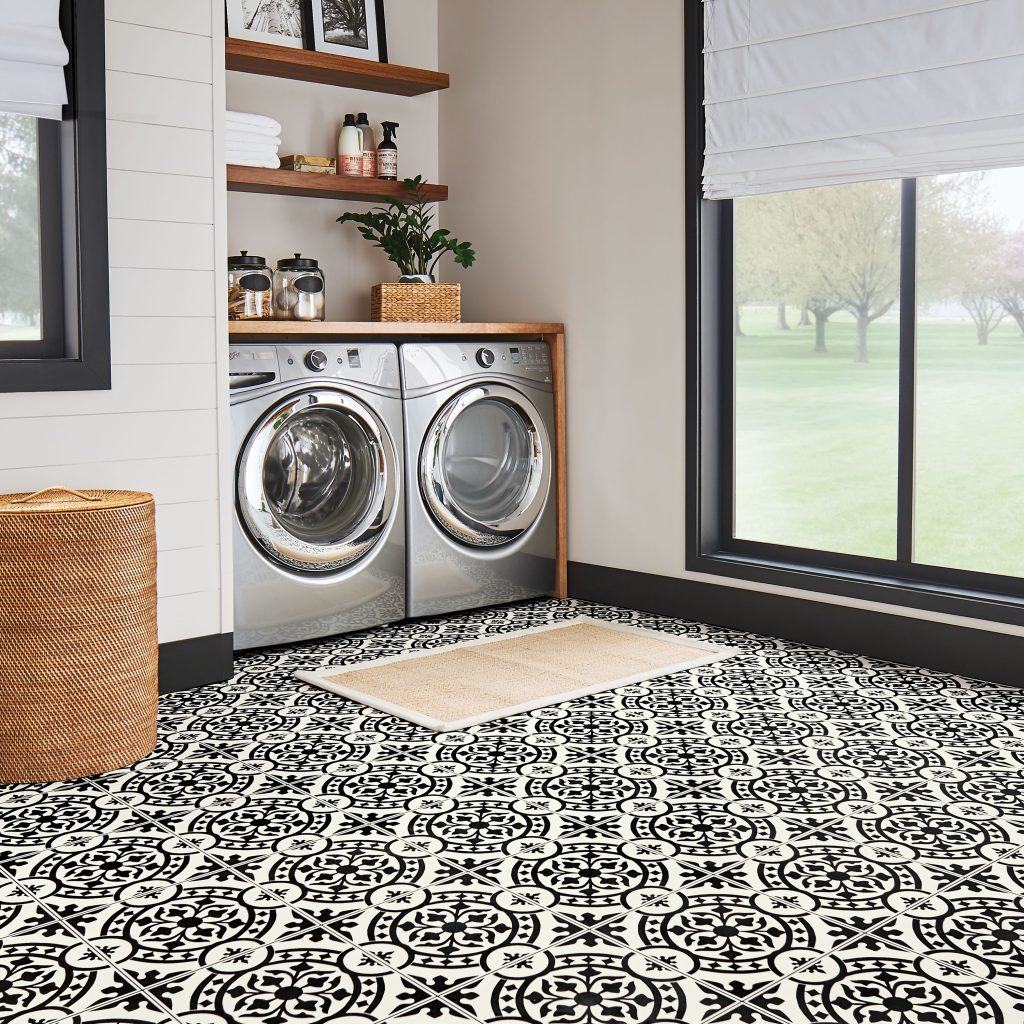
Other Great Flooring Options for Laundry Rooms
Luxury Vinyl (LVT and LVP): Luxury vinyl tiles and planks are fantastic choices, mirroring the benefits of sheet vinyl with added dimensional stability and individual replacement options. Their water resistance and durability make them suitable for laundry rooms, while their variety in design allows for personalized style choices.
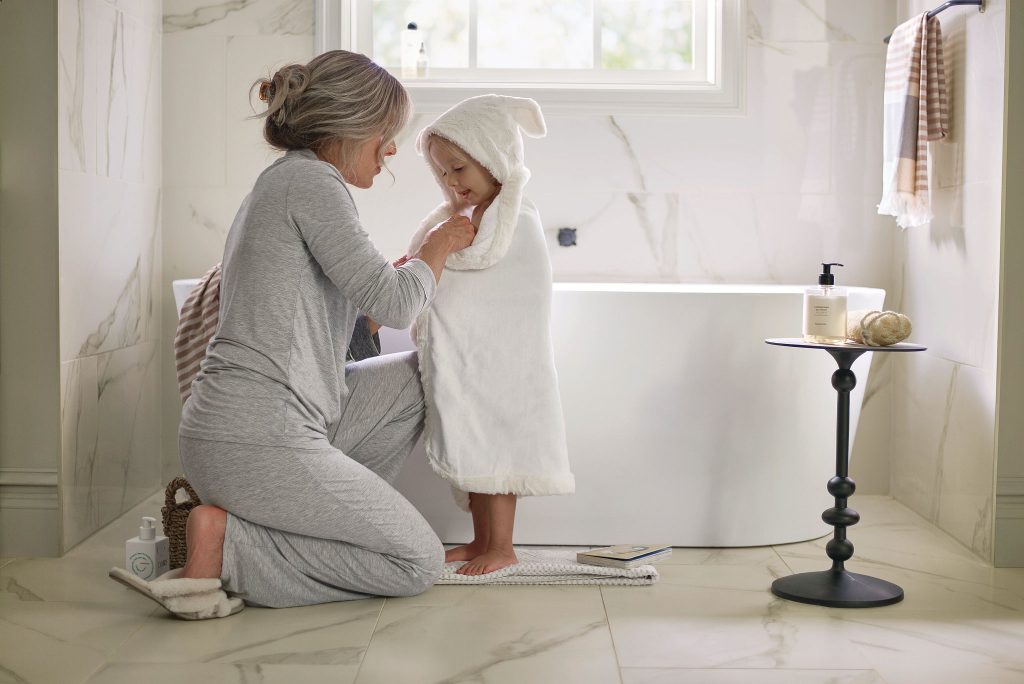
WPC and SPC Flooring: Wood Plastic Composite and Stone Plastic Composite floors offer impressive durability and water resistance, making them strong contenders for laundry rooms. Their core composition ensures a robust flooring solution that stands up to moisture while providing a comfortable underfoot feel, albeit with a slightly higher price tag.
Ceramic Tile Flooring: Known for its water resistance and longevity, ceramic tile is another excellent option. Its hard surface can withstand the rigors of laundry room traffic and spills. While it may be colder and more slippery when wet, modern treatments and rugs can mitigate these drawbacks, offering a stylish and practical flooring choice.
Less Than Ideal Floorings Options for Laundry Rooms
While some flooring options present themselves with attractive qualities, they fall short in the unique environment of a laundry room:
Carpet: Despite its warmth and noise-dampening qualities, carpet is not suitable for laundry rooms. It absorbs moisture and odors, making it difficult to maintain in a high-humidity environment, leading to potential mold and mildew issues.
Hardwood Flooring: Hardwood adds a timeless elegance to any space but is ill-suited for the laundry room. Its vulnerability to moisture can cause swelling, warping, and water damage over time, compromising both aesthetics and functionality.
Laminate Flooring: Laminate offers the look of hardwood or tile at a lower cost but lacks the necessary water resistance for laundry rooms. Exposure to moisture can lead to swelling and damage, making it a risky choice for areas prone to spills and humidity.
Each flooring option has its place in home design, yet when choosing for a laundry room, it’s crucial to consider the unique demands of the space. Luxury vinyl, WPC/SPC, and ceramic tiles offer a blend of durability, moisture resistance, and style, making them worthy alternatives. However, understanding the limitations of carpet, hardwood, and laminate ensures a more informed decision, leading to a functional and beautiful laundry room floor.
The Superiority of Sheet Vinyl
Its waterproof and durable nature makes sheet vinyl perfect for laundry rooms. It’s easy to install and maintain, and its cost-effectiveness and design variety are unbeatable.
Beyond Laundry Rooms
Sheet vinyl’s benefits extend to bathrooms and kitchens, highlighting its versatility and suitability for various home areas.
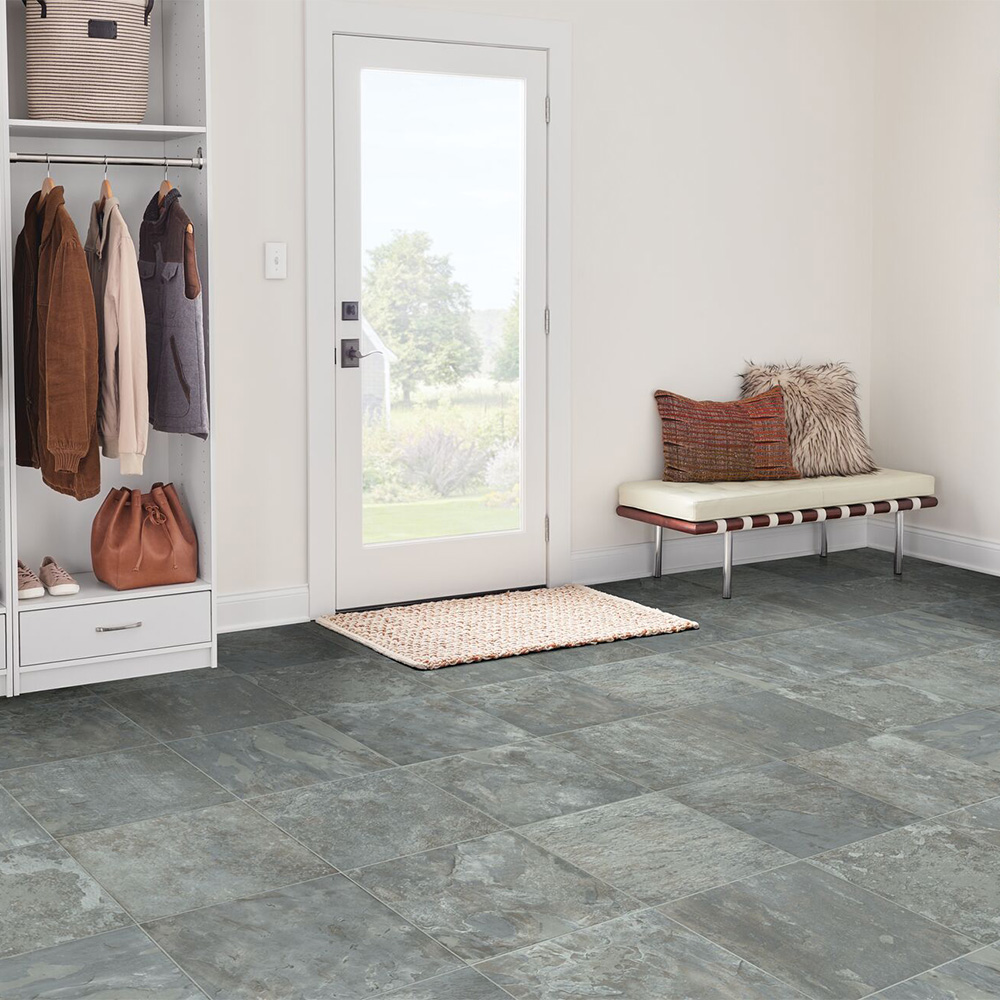
Frequently Asked Questions About Laundry Room Floors
- Is a waterproof laundry floor necessary?
Absolutely. The laundry room is a high-moisture environment, from spills to humidity. A waterproof floor prevents water damage, mold, and mildew, ensuring the longevity and hygiene of the space. - Can vinyl flooring enhance a home?
Yes, it can. Vinyl flooring offers a balance of durability, aesthetic appeal, and cost-effectiveness. Its versatility in designs and textures allows it to mimic more expensive flooring types, enhancing any room’s appearance without breaking the bank. - Is vinyl suitable for kitchens?
Indeed, vinyl flooring is an excellent choice for kitchens. It’s resilient to spills, stains, and heavy foot traffic. Plus, its ease of cleaning and maintenance makes it practical for the hustle and bustle of kitchen life. - What’s the ideal flooring for a laundry room?
Sheet vinyl flooring emerges as the ideal choice for laundry rooms. Its seamless nature prevents water leakage, while its durability withstands heavy appliances. Additionally, its wide range of designs allows for aesthetic flexibility to match any home decor. - Why opt for vinyl flooring?
Choosing vinyl flooring means opting for a blend of durability, moisture resistance, affordability, and design variety. It’s a practical solution for areas prone to moisture and heavy use, offering an attractive finish that can closely resemble more expensive materials.
Sheet vinyl flooring stands out as the best option for laundry rooms due to its exceptional water resistance, durability, ease of maintenance, and design flexibility. Its benefits are not limited to laundry rooms but extend to bathrooms and kitchens, making it a versatile and cost-effective choice for any home.
